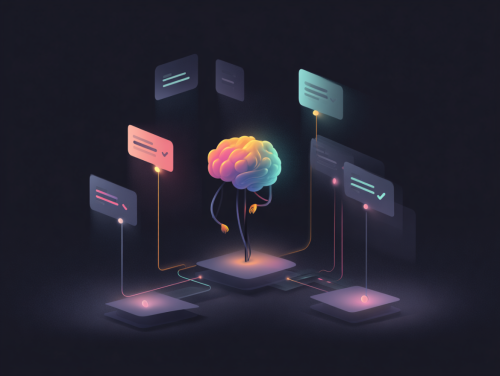
From Hype to Reality - From Phishing Emails to Phishing Agents
11.02.2026
Staying ahead in fraud prevention is a constant challenge. Fraudsters are always innovating, finding new ways to exploit vulnerabilities and bypass security measures. While individual fraudsters often specialize in particular techniques or specific types of scams, fraud fighters must cover a much wider range of areas. This means fraud fighters need to adapt and evolve continually.
Key Qualities of an Effective Fraud Fighter:
And I'm sure some additional traits and skills could be added to the above list. Long story short, fraud fighters' qualities and required skills are diverse to encompass a wide range of areas, reflecting the complexity and demands of their role.
Fraud techniques evolve rapidly. While some techniques, such as phishing or the "Nigerian prince" scam, have been ever-present since the early days of the internet, new ones are constantly introduced. Countermeasures that worked yesterday may not be effective today.
Consider the rise of tech-support scams, where fraudsters impersonate tech support staff from well-known global brands like Microsoft. Leveraging social engineering, they manipulate customers into sending money or gaining access to their bank accounts. This scam has only gained prominence in recent years, but is already causing significant losses. Over the last decade, FBI IC3 reports have documented a rampant increase in victims of tech-support scams, which were once a niche threat.
Similarly, Business Email Compromise (BEC) has become a major concern. In a BEC scam, attackers gain access to an organization's network via targeted phishing emails. Once inside, they use the victim's email to submit altered invoices with account numbers controlled by the attacker. Like the tech-support scam, BEC was rare a decade ago but has quickly grown to cause over $1 billion in losses and continues to grow further.
The list of skills for a successful fraud fighter is comprehensive, but the most crucial skill is keeping pace with these changes and continually learning. This foundational ability supports all other skills and ensures that fraud fighters can effectively combat emerging threats.
The sheer volume of information can be overwhelming. New reports, studies, podcasts, and webinars are released daily, covering a wide range of topics—from the latest threats and vulnerabilities to cutting-edge techniques and technologies for tackling current and future fraud. Filtering through this information to focus on what truly matters is challenging.
Staying current is a common struggle, especially when you need to understand the business context of existing and emerging fraud schemes. To thoroughly examine proposed mitigation techniques, you must be able to break down these frauds into fundamental components and derive practical solutions that can be effectively implemented using available technology.
To maintain an edge, fraud fighters should prioritize the following areas:
While technology is vital, the human element remains irreplaceable. Fraud fighters need to cultivate a mindset of curiosity and skepticism, always questioning and probing deeper into anomalies.
One interesting example of exposing fraud is the story of Harry Markopolos, who uncovered the Bernard Madoff Ponzi scheme in an extraordinary way. Markopolos, a financial analyst, suspected that Madoff's consistently high returns were too good to be true. Using advanced mathematical models and statistical analysis, he proved that the returns were impossible under legitimate trading strategies. Despite submitting detailed reports to the SEC multiple times over several years, his warnings were initially ignored. Markopolos's relentless pursuit and eventual public exposure of the scheme brought significant changes to the financial regulatory environment and showcased the critical importance of diligence, analytical rigor, and persistence in fraud detection.
Becoming a successful fraud fighter is both challenging and immensely rewarding. By focusing on continuous improvement in the most impactful areas, fraud fighters can significantly enhance their organization's defenses.
Remember, combating fraud is a marathon, not a sprint. Continuous learning and adaptability are our crucial allies in this ongoing battle.
